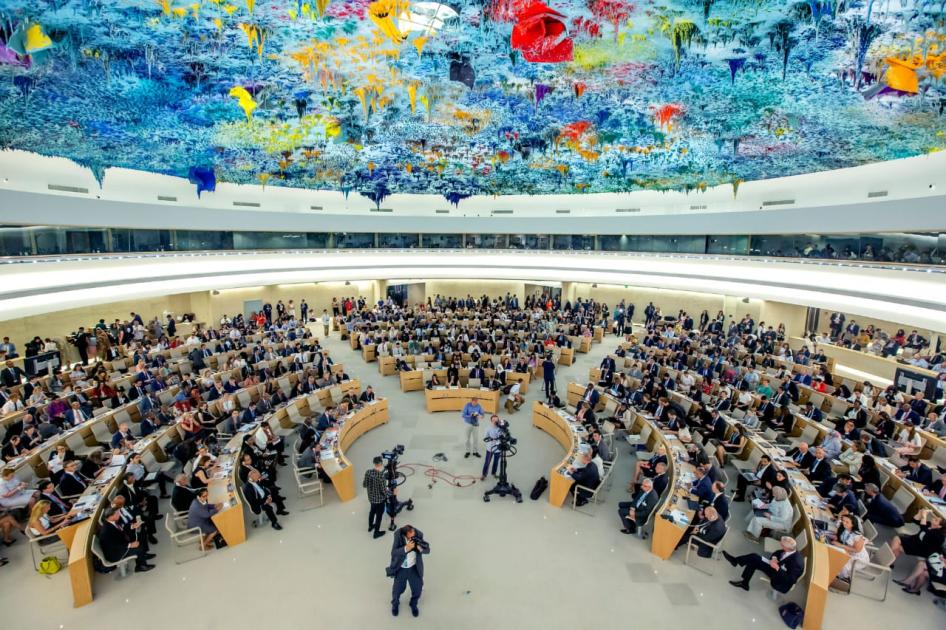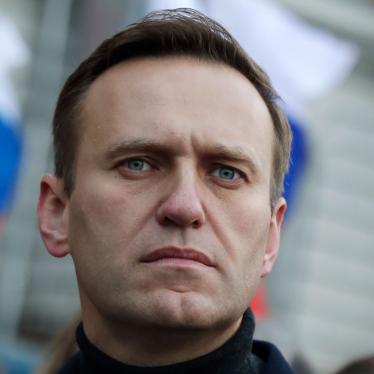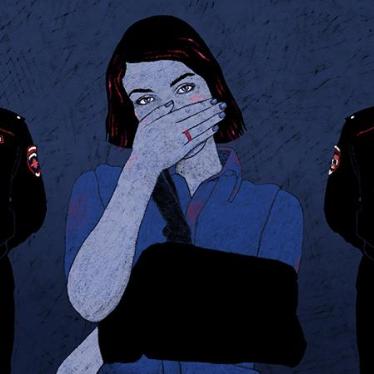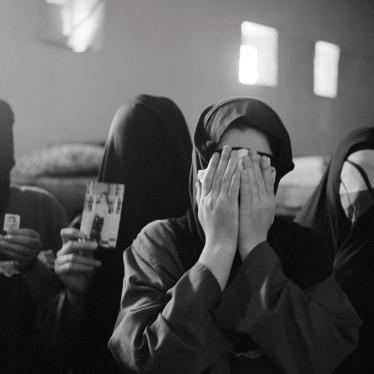For the second time in two years, a group of members at the Human Rights Council, the United Nations’ top human rights body, came together to denounce rights violations in Russia. Two years ago, they expressed outrage over the persecution of lesbian, gay, bisexual and transgender people (LGBT) in Chechnya. Now, the arrest and sentencing of opposition activist Alexei Navalny and the detention of thousands of peaceful protesters have triggered concerns.
The group also rightly pointed at the shrinking space for civil society in Russia and “recent legislative amendments and constitutional changes which further restrict rights and freedoms.”
Navalny’s arrest represents only part of Russia’s deepening crackdown on media, critics, and civil society. In recent years, authorities have used new laws on “foreign agents” and “undesirable foreign organizations” to demonize independent groups, ban foreign or international NGOs, and, more recently, to press criminal charges against Russian activists.
The recent suspended prison sentence imposed on activist Anastasiya Shevchenko, after she endured two years of house arrest and harassment, exemplifies this persecution. Her “crimes” were reposting social media content and attending a public event held by a group the authorities deemed “undesirable.”
In recent months, Russian authorities have passed a flurry of legislative amendments further restricting freedoms of expression, assembly and association, and drastically expanding the scope of the “foreign agents” designation to almost any independent voice. This toxic label can now be used to target any individual or group that receives foreign funding or, in the case of individuals, even non-financial support.
This new legislative arsenal could deal a crushing blow to an already severely restricted civil society. At the Human Rights Council, joint statements like today’s signal that what’s happening in Russia deserves serious international attention. Russia, which rejoined the Council this year for the first time since it was denied a seat in 2016, now enters the club of countries facing its peers’ collective scrutiny.
This is an important message the Kremlin should hear, and one that should signal to Russian citizens that their pleas for a more rights and rule of law respecting Russia are being heard. The scrutiny by the Council’s members is justified and should continue until authorities end this appalling crackdown.










